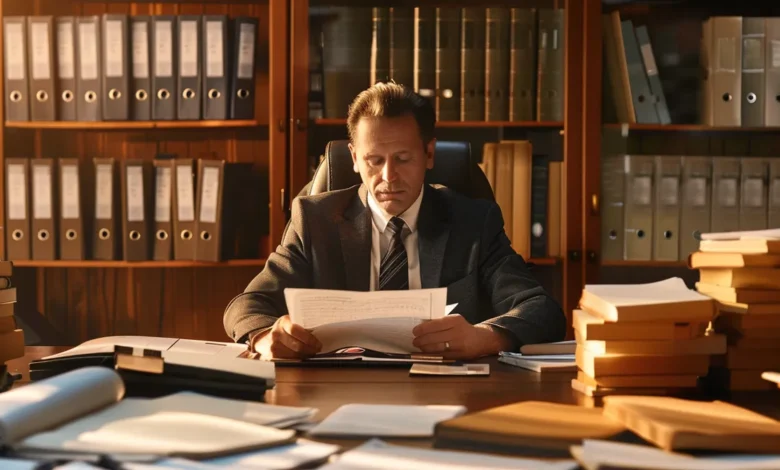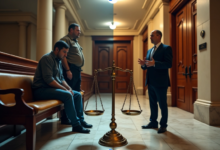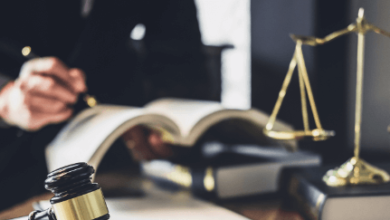What You Need To Know About Filing a Personal Injury Claim After a Casino Accident

Casinos are vibrant epicenters of entertainment, but they can also be the setting for unexpected accidents that result in injury. When the fun of slot machines and table games is overshadowed by an accident, the aftermath can be overwhelming. With the right information and steps, however, the path to recovery and compensation can become clearer. In this article, we will delve into what individuals should know when considering a personal injury claim following a casino-related incident.
Understanding Casino Accident Personal Injury Claims
When you set foot in a casino, the last thing on your mind is the possibility of an accident. Yet, slips, trips, and falls are not uncommon in such bustling environments. Other incidents can include food poisoning, bed bugs in casino hotels, or even injuries from security altercations. It’s critical that patrons understand casinos owe them a duty of care—meaning the establishment must ensure the premises are safe for visitors.
Understanding the complexity of casino operations is fundamental when dealing with personal injury claims. These establishments often have intricate surveillance systems and trained personnel to manage risk. Unfortunately, negligence can occur at any level from the maintenance team failing to signpost a wet floor to a malfunctioning gaming machine causing harm. Awareness of these factors is a key starting point for anyone considering legal action.
If you’re the victim of a casino-related accident, it may be valuable to consult a casino injury lawyer, Richard Harris, as they can offer precise guidance on the legal nuances of these types of claims. Their expertise spans understanding casino operations, the specific regulations they must follow, and how to effectively navigate the legal processes involved.
The Role of Negligence in Casino Accident Claims
Negligence is the cornerstone of personal injury law, and casino accidents are no exception. Demonstrating that the casino was negligent that they breached their duty of care and this breach caused your injury- is essential. Doing so often requires proving that the casino knew, or should have known, about the hazardous condition but failed to address it promptly and appropriately.
Identifying negligence may hinge on the casino’s standard operating procedures and whether they were followed. For example, if a spill on the casino floor was left unattended and without warning signs for an unreasonable amount of time, it could be considered negligence. Proving that the casino had adequate notice of the danger and ample opportunity to remedy it is key.
In some cases, negligence may stem from faulty equipment or improper safety protocols during shows or events. When establishing negligence, it is often beneficial to have expert testimonies, particularly on the causation link between the negligence and the incurred injury.
Navigating the Legal Waters: Filing Your Claim
Filing a personal injury claim entails a precise legal process, fraught with deadlines and procedural requirements. The initial stage usually involves a demand letter outlining the accident, the extent of injuries, and the compensation sought. Well-prepared documentation strengthens your bargaining power for a settlement before filing a lawsuit.
If a settlement cannot be reached, the next step is filing a lawsuit. Ensuring timely action is crucial, given that personal injury cases are subject to statutes of limitations, a window of time in which you can legally file your claim. Missing this deadline can forfeit your right to seek compensation.
Preparation for court involves a discovery process, where both parties exchange relevant information and documentation. In this phase, you’ll need to defend your version of events and may be required to answer interrogatories or partake in depositions. Legal counsel can guide and represent you during these proceedings.
Compensation and Damages: What Can You Expect?
The goal of a personal injury claim is to obtain compensation to cover the costs associated with your injury, known as damages. These can include medical expenses, lost wages, and potentially, pain and suffering. Quantifying these elements is vital in determining the compensation you should demand from the responsible party.
In some cases, punitive damages may also be awarded, particularly if the casino’s conduct was especially egregious or reckless. Though less common, these damages are meant to punish defendants for their actions and to deter similar behavior in the future. Your attorney can help assess whether punitive damages might be applicable to your claim.
Altogether, a casino accident can have significant physical, emotional, and financial impacts. Knowing how to effectively handle a personal injury claim in this context requires knowledge, evidence, and the support of experienced legal representation. By taking the right steps and understanding the intricacies involved, victims can navigate this difficult time and work towards fair compensation for their injuries and losses.






